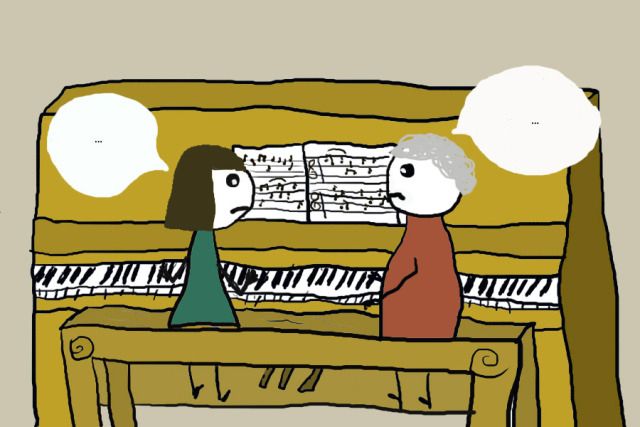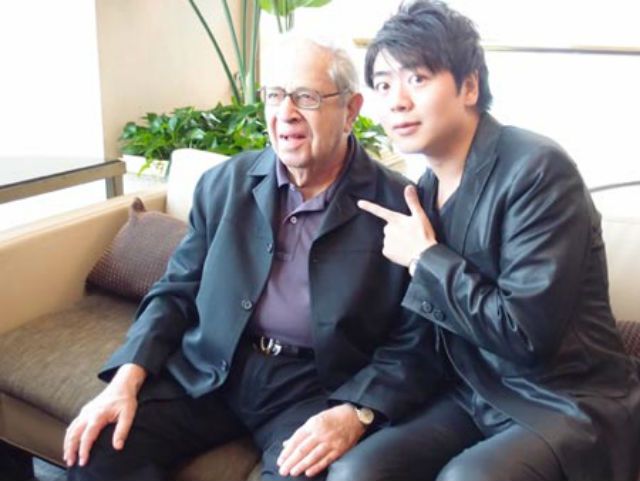The memories a lot of people have of piano lessons at school makes it easy to forget that some of the greatest composers also spent considerable amounts of time teaching the instruments to the star pupils of the day. Chopin, Liszt and Schubert are just a few examples.

Whether or not your piano teacher is famous, the relationship built up with them is important. A growing number of musicians point out that the traditional of an authoritarian style of teaching, with the teacher putting the pupils through their paces, could not be further from the truth. One excellent example for the success of a completely different approach is the superstar pianist Lang Lang and his former teacher Gary Graffman, a first-class pianist in his own right. According to NPR, Lang Lang felt so inspired by Graffman that he persuaded the record label on which they are both signed to release a 24 CD box set of Graffman’s piano performances.

Another one to question the traditional idea of a piano teacher as all-powerful is the British pianist Stephen Hough. While acknowledging that there are certain things in the early stages of learning the instrument that a teacher must communicate to the student, he is in favour of a much more hands-off approach at a higher level. As Hough writes, “a good teacher should probably not even like everything each of her students does. The more talented the pupil the longer the leash of freedom should be. At early pre-college level I am suspicious if there is a large divergence in the quality of students in a studio: necessary technical and musical knowledge is not being transmitted; but at conservatory level I am suspicious if the quality of students in a studio is too uniform: it can suggest that grooming is taking place. A teacher at this advanced level should be a guide and a mentor … and, gradually, eventually, a colleague.”
All this is just to emphasise that you should ideally be able to say quite a lot to your piano teacher without fear of prompting an irritated response. That being said, there are still some things that as a piano teacher you probably would rather not hear. Some things could apply equally to teachers of any subject, but beyond the obvious ones, a considerable number of myths exist about playing the piano which teachers do their best to help their students overcome. This includes convincing pupils that short and regular practice sessions are better than marathon efforts the day before the next lesson, proving that classical music need not be harder to learn than popular genres, and reminding them that not every lesson or practice session has to begin with finger exercises.
If a piano teacher gets the chance to do all of this well, they may never have to come across some of the comments in the list below.
Here are ten things you should never say to the piano teacher.
1. She doesn’t practice because she’s not feeling challenged.
2. What do you do for work, do you have a real job?
3. I don’t get paid until the end of the month. Can I bring the lesson money then?
4. She has never shown much interest in the piano, but can she try it anyway?
5. I never tried to play as a child, so there’s no chance I can learn to do this now.
6. I had a busy week, so I sat down on Saturday afternoon and practiced solidly for three hours to make up for all the days I had missed.
7. I can’t play this piece yet. Why are you trying to teach me something new?
8. I really want to play guitar, but my father told me piano would give me a good musical foundation.
9. I can’t believe how little I have improved in all that time.
10. My friend is getting married next week, and I told her I could learn the Wedding March just in time!

This article makes no sense. At all. Gibberish.